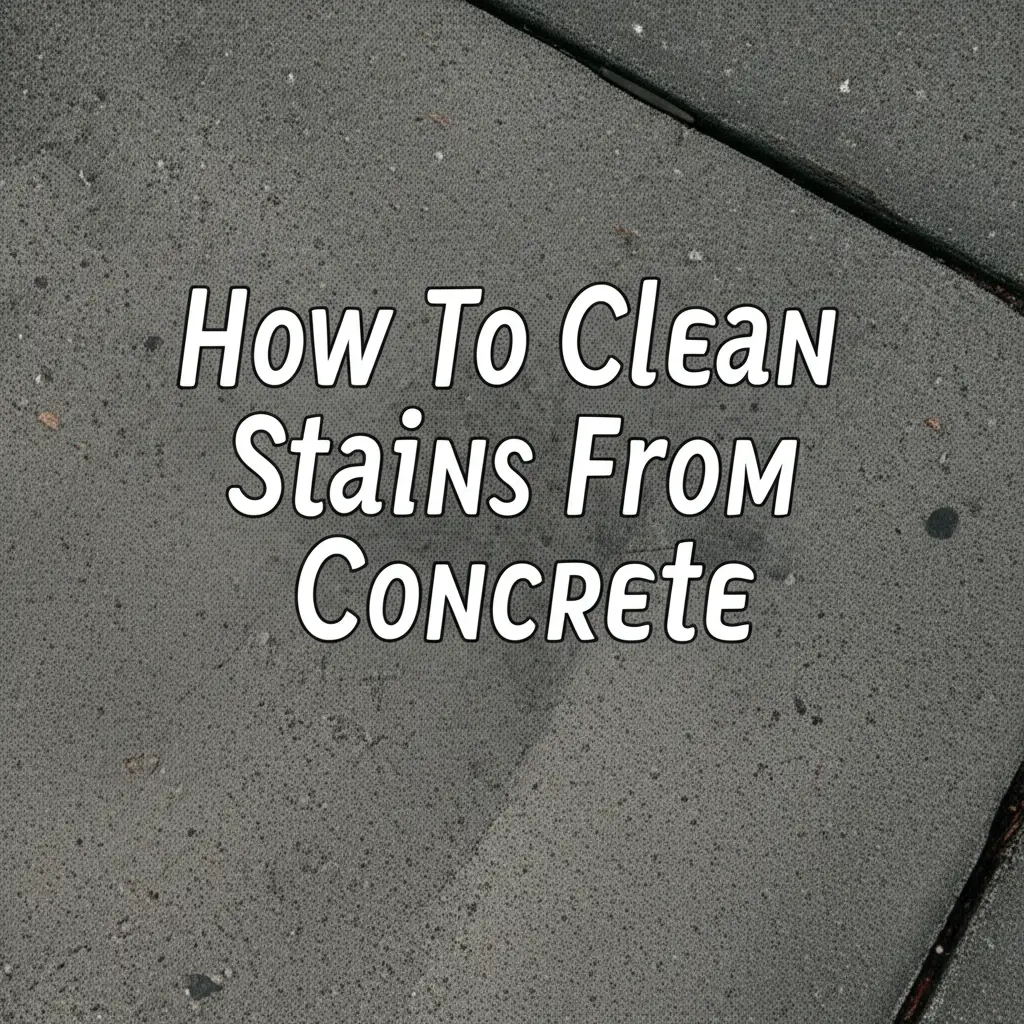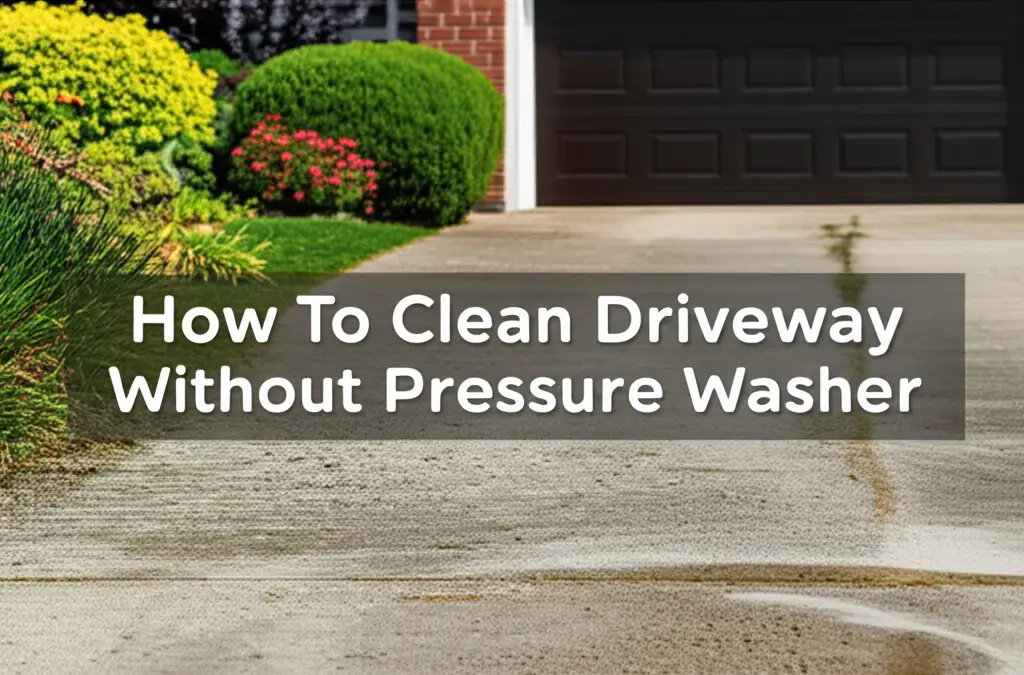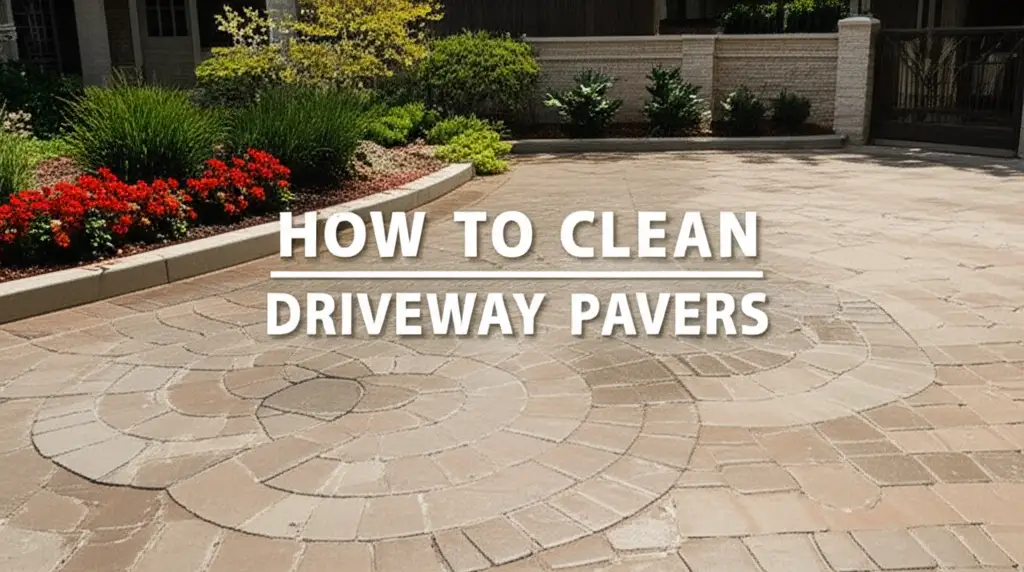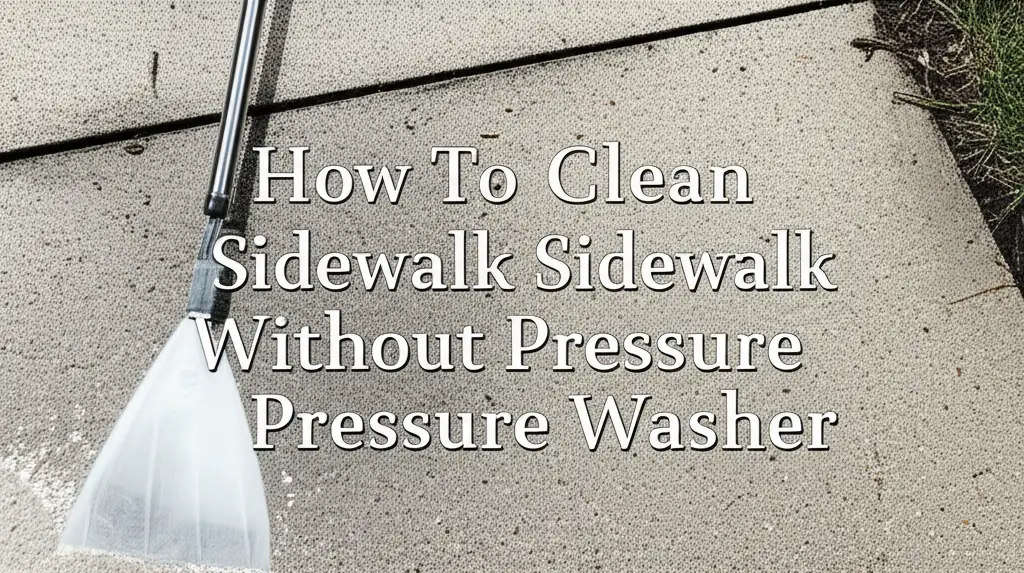· Outdoor Cleaning · 19 min read
How To Clean Bird Poop Off Concrete
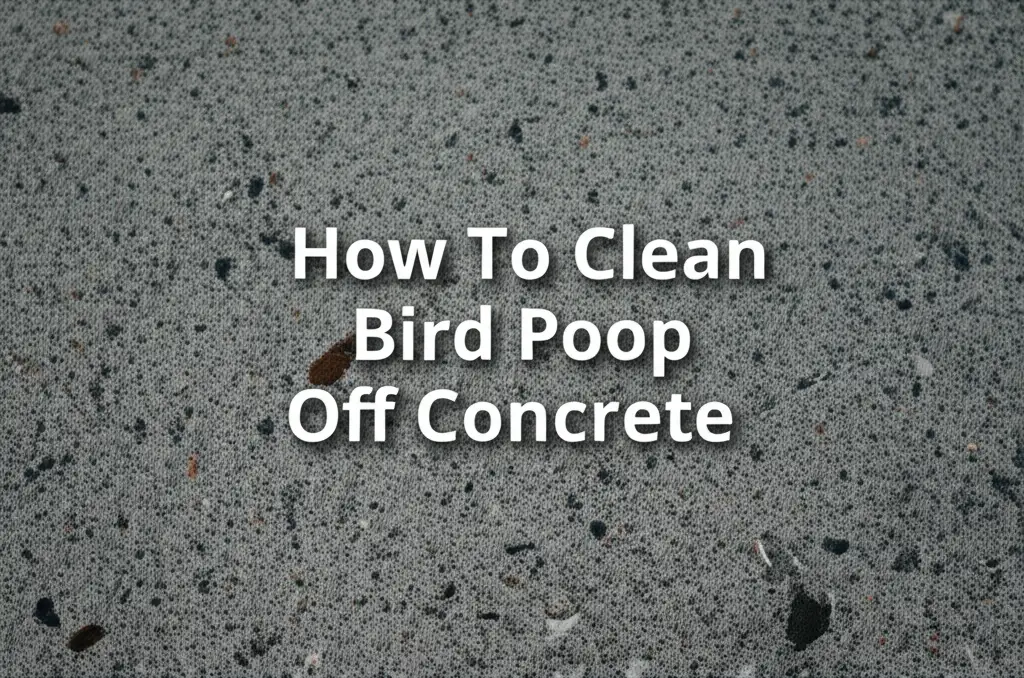
Clear Your Concrete: How To Clean Bird Poop Stains
Bird droppings can quickly mar the appearance of your beautiful concrete surfaces. These unwelcome deposits are not just unsightly. They can also damage your patio, driveway, or walkways over time. Knowing how to clean bird poop off concrete effectively is a valuable skill for any homeowner. I know the frustration of seeing fresh or dried bird waste on my clean outdoor spaces. This guide will walk you through easy steps to restore your concrete.
We will cover why bird poop stains concrete in the first place. You will learn about the essential tools and cleaning agents you need. This article provides step-by-step instructions for both fresh and stubborn stains. We will also explore specific cleaning solutions like vinegar, baking soda, and commercial cleaners. Finally, you will find practical tips to prevent future bird droppings. Let’s get your concrete looking pristine again.
Takeaway
- Act fast on fresh bird droppings to prevent stubborn stains.
- Gather basic cleaning tools and protective gear before you start.
- Use mild solutions like dish soap for fresh stains.
- Apply stronger DIY mixes (vinegar, baking soda) or commercial cleaners for dried marks.
- Consider preventative measures to keep birds away from your concrete.
To clean bird poop off concrete, first remove any solid material carefully. Then, apply a suitable cleaning solution, such as diluted dish soap, white vinegar, or a baking soda paste. Let the solution soak into the stain. Scrub the area thoroughly with a stiff brush. Rinse the concrete completely with water to remove all residue and stain.
Understanding the Enemy: Why Bird Poop Stains Concrete
Bird droppings are more than just a surface mess. They contain unique properties that make them particularly problematic for concrete. Understanding these properties helps you tackle the problem effectively. I often wonder why something so small can cause such a noticeable stain. The answer lies in the composition of bird waste.
Birds excrete uric acid, not urine. This uric acid is highly corrosive. When it lands on concrete, it begins to etch the surface. Concrete is a porous material. This means it has tiny holes and channels. The uric acid and pigments from the bird’s diet seep into these pores. This deep penetration makes stains harder to remove over time. The longer the droppings sit, the deeper they penetrate and the more difficult they become to clean.
Temperature and sunlight also play a role. Heat bakes the droppings onto the concrete. Sunlight can accelerate the staining process. The sun’s UV rays can also set the pigments into the concrete. This creates a lasting discoloration. This is why immediate action is always best. A fresh stain is much easier to wipe away than one that has dried and baked onto the surface for days. Ignoring bird poop can lead to permanent marks. These marks can diminish the look of your outdoor living spaces.
The white part of bird poop is the uric acid. The dark part comes from the bird’s digestive waste. Both components contribute to staining. The white acid eats at the concrete’s surface. The dark pigments leave a visible mark. This combination makes bird poop a double threat to your concrete. Protecting your concrete means understanding this acidic and pigmented nature. Proper cleaning prevents long-term damage and keeps your surfaces clean.
Essential Tools and Supplies for Bird Poop Removal
Before you begin cleaning, gather all necessary tools and supplies. Having everything ready saves time and makes the process smoother. I always make sure I have my gear laid out before I start any cleaning project. This preparation helps me work efficiently. You will need a few basic items. Most of these you might already have around your home.
First, safety gear is important. Wear protective gloves to protect your hands from the waste and cleaning solutions. Eye protection is also wise, especially if you plan to scrub vigorously or use strong cleaners. Bird droppings can contain bacteria or fungi. Protecting yourself prevents exposure. This is a simple step that provides peace of mind.
For scraping, a plastic scraper or an old stiff brush works well. Avoid metal scrapers on concrete. Metal can scratch or damage the surface. A garden hose with a strong nozzle is essential for rinsing. A bucket is useful for mixing solutions. You will also need a sturdy scrub brush with stiff bristles. This helps agitate the stains. A soft-bristled brush might not be effective enough for dried bird droppings.
Regarding cleaning agents, several options exist. Mild dish soap is often sufficient for fresh stains. White vinegar is a natural, acidic cleaner that works well on many stains. Baking soda can be used as a mild abrasive paste. For tougher stains, you might consider a diluted bleach solution. Always use bleach carefully. Commercial concrete cleaners are another option for very stubborn marks. These cleaners are designed for specific types of concrete stains. Choose your cleaning agent based on the age and severity of the bird poop stain.
- Protective Gear: Gloves, eye protection.
- Scrapers: Plastic scraper or stiff plastic brush.
- Water Source: Garden hose with strong nozzle.
- Brushes: Stiff-bristled scrub brush.
- Containers: Bucket for mixing.
- Cleaning Agents:
- Mild dish soap
- White vinegar
- Baking soda
- Bleach (diluted)
- Commercial concrete cleaner (optional)
Having these items ready makes the cleaning process much easier. You will be able to tackle the mess without interruption. This preparation step is key to successful stain removal.
Step-by-Step Guide: Cleaning Fresh Bird Droppings
Cleaning fresh bird droppings is much easier than tackling old, dried stains. Prompt action is key. I always try to clean bird poop as soon as I see it. This prevents the uric acid from etching into the concrete. It also stops pigments from setting deep. Follow these simple steps for quick removal.
Gentle Scrape and Rinse
Start by removing any solid or thick pieces of bird poop. Use a plastic scraper, an old credit card, or a stiff piece of cardboard. Scrape gently to avoid spreading the mess or scratching your concrete. Do not press too hard. You just want to lift the bulk of the material. Once the large pieces are gone, immediately rinse the area with water from a garden hose. A strong stream of water helps dislodge any remaining loose debris. It also pre-wets the stain. This prevents it from drying further. This first rinse dilutes the uric acid. This is crucial for minimizing damage to your concrete.
Applying Mild Cleaning Solutions
After the initial rinse, it is time for a cleaning solution. For fresh stains, a mild dish soap solution often works wonders. Mix a few drops of dish soap with warm water in a bucket. Apply this soapy water generously to the affected area. Let the solution sit on the stain for a few minutes. This allows the soap to break down the organic matter. Soap helps lift the stain from the concrete pores. This waiting period is important. It gives the cleaner time to work.
Next, take your stiff-bristled scrub brush. Vigorously scrub the stained area. Apply firm pressure. Work the solution into the concrete. You should see the stain begin to fade. Keep scrubbing until the stain is gone or significantly lightened. For general concrete cleaning, similar methods apply even without a pressure washer. Learn more about effective methods in our guide on how to clean concrete patio without pressure washer.
Finally, rinse the area thoroughly with your garden hose. Make sure all soap residue is gone. Any leftover soap can attract new dirt. It can also leave streaks. Repeat the process if any part of the stain remains. Fresh stains usually come out completely with this method. Acting quickly saves you effort later on.
Tackling Stubborn and Dried Bird Poop Stains
Dried bird poop stains are more challenging than fresh ones. The uric acid and pigments have had time to set into the concrete’s pores. You will need a bit more patience and stronger methods for these marks. I have faced many stubborn stains, and they require a different approach. Do not give up if the first attempt does not work.
Soaking and Loosening Dried Droppings
The first step for dried stains is to rehydrate them. Pour warm water over the dried bird poop. Let the water sit on the stain for at least 10-15 minutes. Even better, place a wet cloth or paper towels directly over the stain. Keep the cloth moist for 30 minutes to an hour. This soaking period is critical. It softens the hardened droppings. It also helps loosen their grip on the concrete. The more thoroughly rehydrated the stain, the easier it will be to remove. This step prepares the stain for cleaning solutions.
Using Stronger DIY Solutions
Once the stain is rehydrated, you can apply more potent DIY cleaners. White vinegar is excellent for breaking down the acidic components of bird poop. Mix equal parts white vinegar and water in a spray bottle. Spray the solution generously onto the stain. Let it sit for 10-15 minutes. Then, scrub vigorously with a stiff brush. Vinegar can fizz and bubble. This means it is working.
For very stubborn stains, a baking soda paste works well. Mix baking soda with just enough water to form a thick paste. Apply this paste directly onto the stain. Let it sit for 20-30 minutes, or even longer for deep stains. Baking soda is a mild abrasive. It also helps neutralize the uric acid. After soaking, scrub the paste into the stain. The abrasive action helps lift the embedded particles. Many household cleaning tasks benefit from the power of vinegar and baking soda. Find more uses in our article about how to clean with vinegar and baking soda.
When to Use Commercial Cleaners
If DIY methods do not fully remove the stain, consider a commercial concrete cleaner. These products are formulated to tackle tough stains on porous surfaces. Choose a cleaner specifically designed for organic stains or general concrete cleaning. Always read the product instructions carefully. Commercial cleaners often contain stronger chemicals. Follow safety precautions, such as wearing gloves and eye protection.
Apply the commercial cleaner according to the manufacturer’s directions. Some cleaners require dilution. Others are ready to use. Allow the cleaner to dwell on the stain for the recommended time. Then, scrub with a stiff brush. Rinse the area thoroughly with water. You may need to repeat the application for very old or deeply embedded stains. Test any commercial cleaner on an inconspicuous area first. This ensures it does not damage or discolor your concrete. Persistence is often key with dried bird poop stains.
Specific Cleaning Solutions and Their Applications
Choosing the right cleaning solution depends on the stain’s age and severity. Each cleaner has its strengths and weaknesses. I keep a variety of options on hand for different cleaning challenges. Understanding how each works helps you select the best approach.
Dish Soap: Mild and Effective
Dish soap is your go-to for fresh bird droppings. It is mild and readily available. Dish soap works by breaking down organic matter. It helps lift the stain from the concrete surface.
- Application: Mix a few drops of liquid dish soap with warm water in a bucket. Pour or spray the solution generously onto the fresh stain.
- Process: Let it sit for 5-10 minutes. Scrub with a stiff brush. Rinse thoroughly with clean water.
- Best For: Fresh, small bird poop stains. It is safe for most concrete types.
Vinegar: Natural Acid for Tougher Stains
White vinegar is an acidic solution. It is effective at breaking down the uric acid in bird poop. Vinegar is also a natural disinfectant. It can help with mold or mildew that might grow around old stains.
- Application: Mix equal parts white vinegar and water. For very tough stains, use undiluted vinegar. Apply the solution directly to the stain.
- Process: Let it sit for 10-15 minutes. The acid needs time to work. Scrub with a stiff brush. Rinse completely with water.
- Best For: Dried, moderate bird poop stains. It also helps remove mineral deposits.
- Caution: Vinegar can be slightly acidic. Do not use it on polished or sealed concrete surfaces without testing first.
Baking Soda: Abrasive and Odor Neutralizer
Baking soda is a versatile cleaner. It acts as a mild abrasive. It also helps neutralize odors. Its alkaline nature can counteract the acid in bird poop.
- Application: Create a thick paste by mixing baking soda with a small amount of water. Apply the paste directly onto the stain.
- Process: Let the paste sit for 20-30 minutes, or longer for stubborn stains. Scrub the paste into the stain with a stiff brush. Rinse thoroughly.
- Best For: Stubborn, dried bird poop stains. It is also good for general surface grime. Baking soda is a fantastic cleaner for many surfaces. You can even use it to clean a bird bath. Check out our guide on how to clean bird bath with baking soda.
Bleach: For Deep Discoloration and Sanitization
Bleach is a strong disinfectant and whitener. Use it with caution. It can effectively remove deep discoloration. It also kills bacteria and mold.
- Application: Dilute household bleach with water. A common ratio is 1 part bleach to 10 parts water. Always add bleach to water, not the other way around.
- Process: Apply the diluted bleach solution to the stain. Let it sit for 5-10 minutes. Do not let it dry on the concrete. Scrub and rinse thoroughly.
- Best For: Very deep, set-in stains or areas with mold growth.
- Caution: Bleach can damage plants. It can also discolor colored concrete. Always wear gloves and eye protection. Ensure good ventilation. Never mix bleach with vinegar or other cleaners, as it can produce toxic fumes. Bleach can be powerful against tough organic stains, similar to how it can tackle mold on other surfaces. Explore methods for other mold issues in our article about how to clean black mold off wood.
Commercial Cleaners: Specialized Solutions
When DIY methods fail, commercial concrete cleaners are a good option. These products are formulated for specific concrete issues. Some target organic stains. Others focus on oil or rust.
- Application: Follow the manufacturer’s instructions precisely. Dilution rates and application methods vary.
- Process: Typically involves applying, letting it dwell, scrubbing, and rinsing.
- Best For: Extremely stubborn, long-standing bird poop stains.
- Caution: Always test on an inconspicuous area first. Wear appropriate protective gear. Dispose of rinse water properly.
Choosing the right solution ensures effective cleaning without damaging your concrete. Always start with the mildest option. Move to stronger cleaners only if necessary.
Preventing Future Bird Poop Accumulation on Concrete
Cleaning bird poop is one thing. Preventing it is another. I have found that a little prevention goes a long way. Keeping birds away from your concrete surfaces can save you a lot of cleaning effort. Consider these strategies to deter birds.
Deterrents: Make Your Concrete Less Appealing
Birds are looking for comfortable perching or nesting spots. Make your concrete less inviting.
- Bird Spikes: Install plastic or metal bird spikes on ledges, railings, or beams above your concrete. These make it uncomfortable for birds to land. They are humane and effective.
- Netting: For larger areas, netting can create a physical barrier. Install bird netting over patios or carports. This prevents birds from accessing the area.
- Reflective Objects: Birds are often scared by shiny, moving objects. Hang old CDs, aluminum foil strips, or reflective Mylar tape. Place them near areas where birds perch. The movement and reflections can scare them away.
- Sound Devices: Some devices emit sounds that deter birds. These can be ultrasonic, meaning humans cannot hear them. Others mimic predator calls. Use these cautiously, as they might bother neighbors.
- Motion-Activated Sprinklers: These sprinklers detect movement. They release a sudden burst of water. This startles birds and sends them flying. They are effective for larger open concrete areas.
Regular Cleaning: Maintain a Clean Environment
Birds are attracted to areas with food or water sources. Keeping your concrete clean is a simple deterrent.
- Sweep Regularly: Sweep your patio or driveway daily. Remove crumbs, seeds, or other food debris. This eliminates potential food sources for birds.
- Clean Up Spills: Promptly clean up any food or drink spills. Even small spills can attract birds.
- Address Water Sources: Fix any leaky faucets or sprinklers. Standing water can become a bird bath or drinking spot. If you have a bird bath, keep it clean. Regular cleaning extends to other outdoor surfaces too. Learn more about maintaining cleanliness on your deck with our guide on how to clean bird poop off a deck.
Sealing Concrete: Add a Protective Layer
Sealing your concrete creates a protective barrier. This barrier makes it less porous.
- Reduced Absorption: A sealed surface is less likely to absorb liquids. This includes uric acid and pigments from bird droppings.
- Easier Cleaning: Stains sit on top of a sealed surface. This makes them easier to wipe away. They do not penetrate deep into the material.
- Application: Apply a high-quality concrete sealer. Choose one designed for outdoor use. Follow the manufacturer’s instructions for application. Reapply sealer every few years.
Implementing these prevention strategies can significantly reduce the amount of bird poop on your concrete. It keeps your outdoor spaces cleaner and more inviting.
Safety Measures and Environmental Considerations
When cleaning with any solutions, safety is paramount. You also need to think about the environment. I always prioritize safety first. Proper handling of cleaning agents protects you and your surroundings.
Prioritizing Your Safety
Bird droppings can carry diseases. Cleaning solutions can be harsh. Take precautions to protect yourself.
- Wear Protective Gear: Always wear chemical-resistant gloves. This protects your hands from both bird waste and cleaning chemicals. Safety glasses or goggles are also important. They prevent splashes from reaching your eyes.
- Ensure Ventilation: Work in a well-ventilated area. If you are cleaning in a semi-enclosed space, open windows or doors. This prevents fume buildup, especially when using bleach or strong commercial cleaners.
- Avoid Mixing Chemicals: Never mix bleach with other cleaning agents, especially ammonia or acids like vinegar. Mixing can create dangerous, toxic gases. Always use one cleaning product at a time.
- Read Product Labels: Follow the instructions on commercial cleaning products precisely. Pay attention to dilution ratios, application times, and specific safety warnings.
- Proper Storage: Store cleaning products in their original containers. Keep them in a cool, dry place. Make sure they are out of reach of children and pets.
Protecting the Environment
Your cleaning actions can impact nearby plants, soil, and waterways. Be mindful of this when cleaning outdoor surfaces.
- Protect Plants and Grass: Rinse nearby plants with plain water before applying any cleaning solutions. Cover sensitive plants with plastic sheeting if needed. This prevents accidental exposure to chemicals.
- Control Runoff: Try to minimize runoff into storm drains or natural bodies of water. Some commercial cleaners contain phosphates or other pollutants. Collect rinse water if possible. Dispose of it properly according to local regulations.
- Choose Eco-Friendly Options: Whenever possible, opt for natural cleaning solutions. Vinegar, baking soda, and mild dish soap are safer for the environment than harsh chemicals. They break down more easily.
- Dispose of Waste Properly: Collect solid bird waste in a bag. Dispose of it in your regular trash. Do not wash large amounts of waste directly into storm drains.
By following these safety and environmental guidelines, you ensure a safe cleaning process. You also protect your health and the health of the planet. Clean effectively and responsibly.
FAQ Section
Q1: Is bird poop harmful to concrete?
Yes, bird poop can harm concrete over time. It contains uric acid, which is corrosive. This acid can etch the surface of porous concrete. Pigments in the droppings can also cause permanent staining. Prompt removal prevents deeper damage and discoloration. Acting quickly helps maintain the concrete’s appearance and integrity.
Q2: Can I use a pressure washer for bird poop?
You can use a pressure washer for bird poop. It is effective for larger areas and stubborn stains. Use a wide spray nozzle. Keep a safe distance from the concrete surface. Too much pressure or a narrow stream can damage the concrete. Always test a small, hidden area first.
Q3: How often should I clean bird poop?
Clean bird poop as soon as you notice it. Fresh droppings are much easier to remove. They cause less damage. For areas prone to bird activity, regular sweeping and inspection are helpful. Aim to clean every few days or weekly to prevent accumulation and stubborn stains.
Q4: What if the stain won’t come out?
If a bird poop stain persists after multiple attempts, consider stronger measures. Try a commercial concrete cleaner designed for organic stains. As a last resort, professional concrete cleaning services might be an option. They have specialized equipment and chemicals for tough stains.
Q5: Can bird poop spread disease?
Yes, bird poop can carry various bacteria, fungi, and parasites. These can cause diseases in humans, especially when inhaled or ingested. Always wear gloves and eye protection when cleaning bird droppings. Avoid touching your face. Wash your hands thoroughly afterwards.
Q6: Are there specific products for bird poop on concrete?
While many general concrete cleaners work, some products are formulated for organic stains. Look for enzymatic cleaners. These contain enzymes that break down organic matter. These can be very effective. Always check product reviews and ensure they are safe for concrete.
Conclusion
Cleaning bird poop off concrete does not have to be a daunting task. By understanding why these droppings stain and applying the right techniques, you can keep your outdoor surfaces looking clean and new. We have explored the acidic nature of bird waste and its impact on porous concrete. We also covered the essential tools and cleaning solutions. From simple dish soap to stronger vinegar or baking soda pastes, you now have the knowledge to tackle any bird poop challenge.
Remember, acting quickly on fresh stains saves you time and effort. For stubborn, dried marks, patience and a multi-step approach are key. We also discussed effective prevention methods, from physical deterrents to regular cleaning and concrete sealing. Implementing these strategies will significantly reduce future bird droppings. Your concrete is an important part of your home’s appeal. Keeping it clean enhances your property’s value and your enjoyment of outdoor spaces.
Always prioritize safety during cleaning. Wear protective gear and use chemicals responsibly. You protect both yourself and the environment. Take action today. Transform your stained concrete into a spotless surface. Enjoy a cleaner, more inviting outdoor living space. Your efforts will pay off with a pristine patio, driveway, or walkway.
- bird poop
- concrete cleaning
- stain removal
- outdoor cleaning
- patio cleaning
- driveway cleaning
- concrete stains

